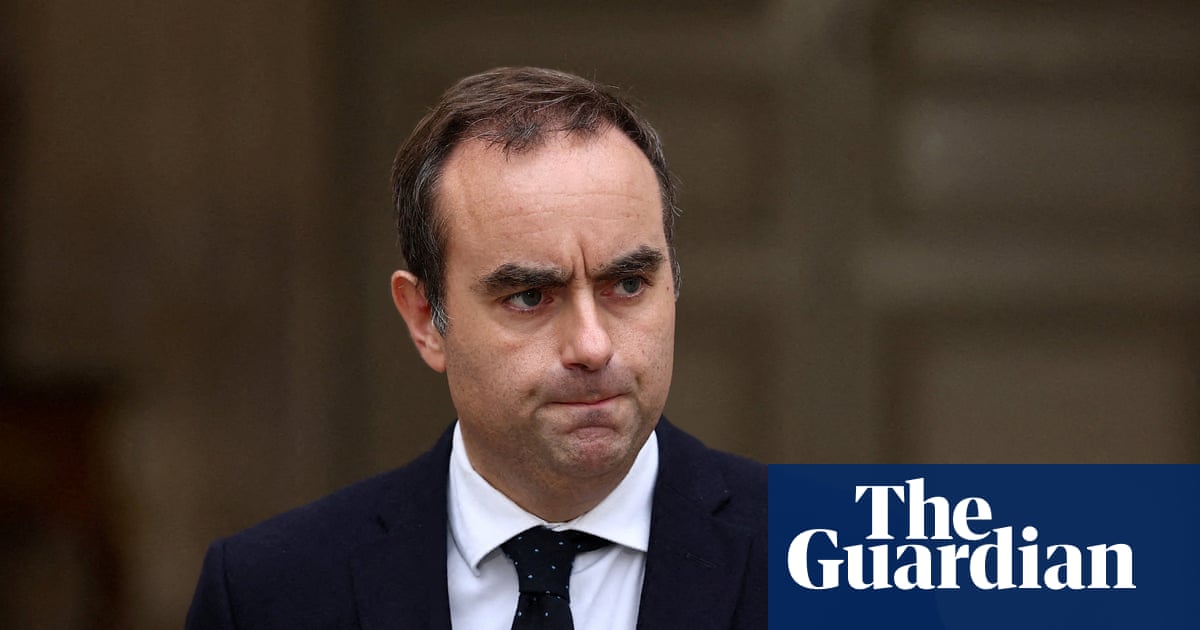Why has France’s PM resigned after 27 days – and what could happen next? | France

France’s prime minister, Sébastien Lecornu, has resigned along with his government, less than a month after his appointment and within hours of the new cabinet being announced, dramatically deepening the country’s political crisis.
It is the latest shock development in a series of events that suggest France, the EU’s second-biggest member state, is becoming increasingly ungovernable. Here is a look at what just happened, why – and what might come next.
What just happened?
Lecornu, who was appointed 27 days ago, tendered his resignation and that of his government on Monday, barely 12 hours after the key members of his cabinet had been announced. He became the shortest-lived prime minister in modern French history.
The 39-year-old former defence minister, a close ally of Emmanuel Macron, was France’s fifth prime minister since the president’s re-election in 2022 and the third since Macron dissolved parliament and called early legislative elections that were held last summer.
Lecornu blamed party-political intransigence, saying he had been “ready to compromise, but every party wanted every other party to adopt its full programme”. It would “not take much for it to work”, but “partisan attitudes” and “certain egos” stood in the way, he said.
His departure alarmed markets, with the CAC 40 stock index dropping 2% and the euro, 0.7%. France’s debt-to-GDP ratio is the EU’s third-highest after Greece and Italy, almost twice the 60% permitted under EU rules – as is its projected budget deficit of nearly 6%.
Why did it happen?
The roots of the crisis lie in that 2024 snap general election, which produced a hung parliament divided between three more or less equal blocs: the left, the far right and Macron’s own centre-right alliance, with no group coming close to a clear majority.
France’s financial crisis has only added to that instability, as have presidential elections due in 2027. Macron cannot stand again, and with each party keen to stake out its ground before the vote, common ground in parliament has become even harder to find.
Lecornu faced the tough job of passing an austerity budget through the divided assembly aimed at reining in the yawning budget deficit – a task that defeated his two immediate predecessors, François Bayrou and Michel Barnier, who were ousted by MPs over the plan.
The immediate trigger for his resignation appears to have been the reaction of the centre-right Les Républicains (LR) to the new cabinet. The party said the largely unchanged lineup did not reflect the “profound break” with past politics that Lecornu had promised.
But announcement of the main cabinet posts on Sunday evening prompted fierce criticism from across the political spectrum, with allies and opponents denouncing it as either too rightwing or not rightwing enough, and threatening to topple the new government.
The return of Bruno Le Maire, Macron’s economy minister for seven years, to government as defence minister particularly enraged politicians from most parties, who saw it as a confirmation that Macron’s pro-business economic policies were not up for discussion.
What might happen now?
The far-right National Rally (RN) of Marine Le Pen and Jordan Bardella has called on Macron to dissolve parliament and hold fresh elections, while the radical left France Unbowed (LFI) has reiterated longstanding calls for the president himself to step down.
Macron has three main options, all hazardous and none very appealing. First, he could name a new prime minister. A figure from within his own camp now appears unlikely, while even a moderate leftwinger would challenge his hard-won pension reform.
On the other hand, appointing a confirmed rightwinger would infuriate the left bloc. Given the pressing need to achieve a minimum of consensus to at least pass a budget for this year, some analysts have suggested he may try to turn to a non-party political technocrat.
Second, he could dissolve the national assembly and call fresh legislative elections, a move he has consistently said he is reluctant to do and which polls suggest would probably return another divided parliament – or potentially usher in an RN government.
His final option would be to resign, but again, he has repeatedly ruled out standing aside before the presidential election in 2027 – a vote seen as a historic crossroads in French politics, with Le Pen sensing her best ever chance of taking power.
Source link

